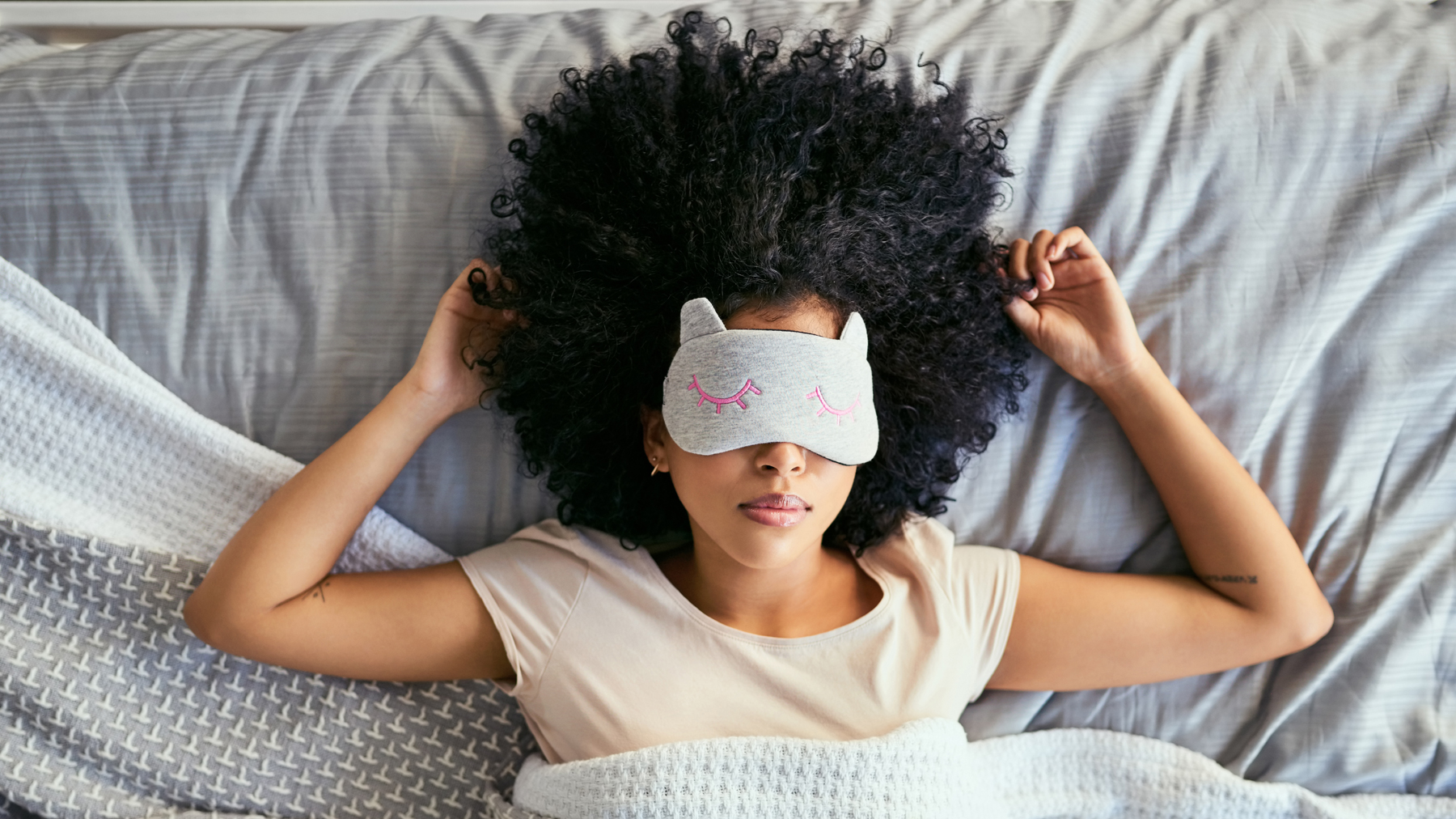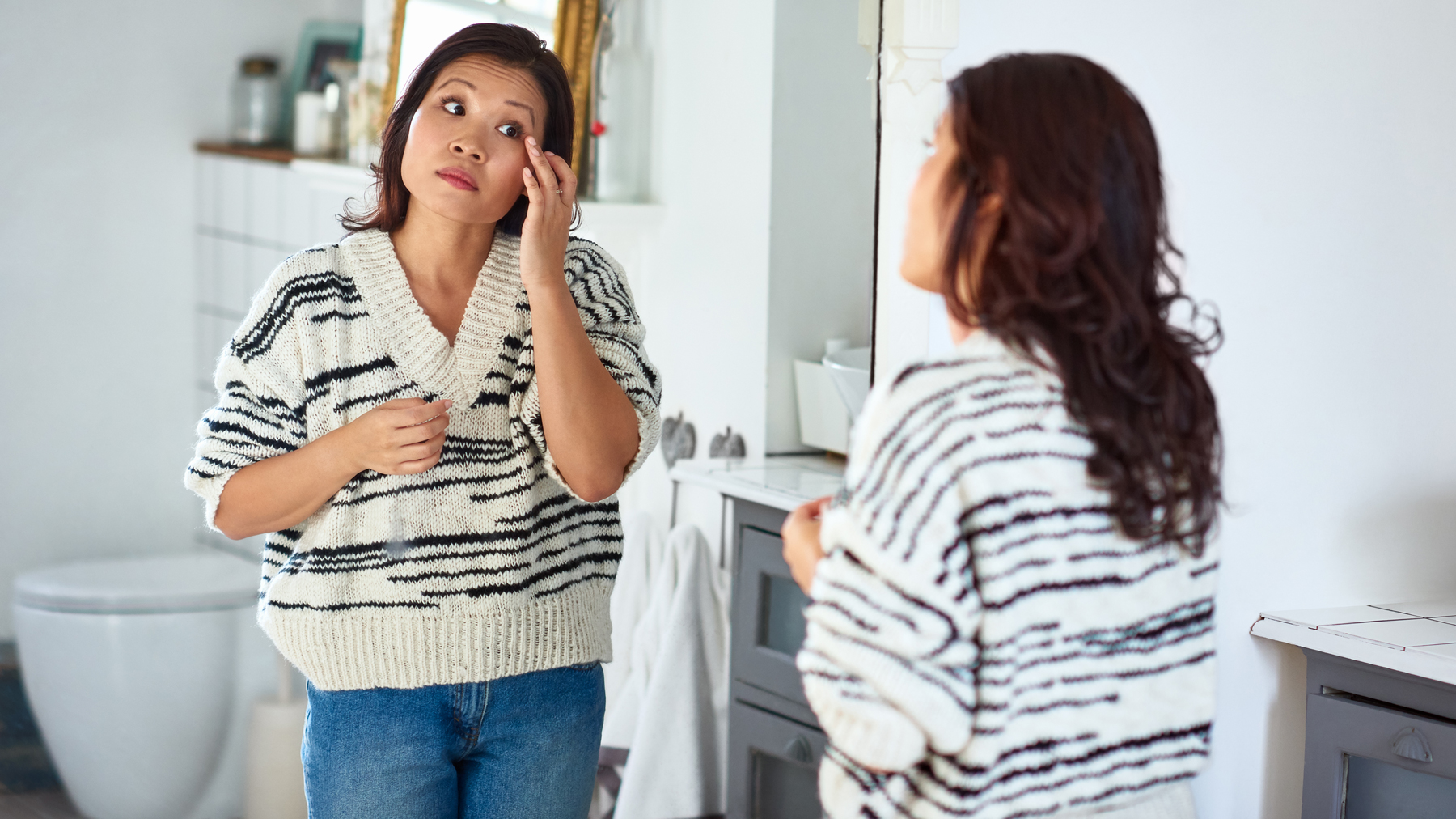Research finds poor sleep can age your skin faster - here's what to do
Not giving yourself enough time to sleep? Increasing your shut-eye will help slow down the rate your skin ages


Start your week with achievable workout ideas, health tips and wellbeing advice in your inbox.
You are now subscribed
Your newsletter sign-up was successful
No matter how well you eat or how much you exercise to stay fit as you get older, you also need to make sure you're allowing yourself enough sleep time. Not only do we wake up in a better mood, or feel more energized after a full night's sleep, but science has found sleep is also crucial to how well our skin ages.
Some of the best vitamins for women over 50 are a great way to supplement essential nutrients that you may struggle to keep on top of as you age. However, we can't just rely on supplements to keep our skin youthful and in good nick.
This is where sleep comes in handy, and research commissioned by leading skincare brand, Estée Lauder, reveals that inadequate sleep is linked with reduced skin health and speeds up skin aging. The clinical trial was carried out by a group of physician-scientists at University Hospitals (UH) Case Medical Center and specifically looked into determining if skin function and appearance are impacted by poor sleep.
After gathering together a group of pre-menopausal women (aged between 30 and 49), half of which were categorized as getting poor sleep, the scientists performed skin evaluations of the participants, as well as having them undergo non-invasive skin challenge tests including UV light exposure and skin barrier disruption. In order to quantify the volume of sleep the participants got during the testing, they also had the women log their sleep for the week.
The results revealed very apparent differences in skin condition between good and poor quality sleepers within the group. Those who got poor sleep had increased signs of intrinsic skin aging, this looks like fine lines, uneven pigmentation, slackening of the skin, and less elasticity.

On the other hand, the participants who were classified as getting good quality sleep recovered 'more efficiently' from stressors to the skin. So they proved to recover quicker from sunburn, avoiding redness and inflammation, better than those who got poorer sleep. The skin of the better quality sleepers was also more effective at avoiding moisture loss.
The researchers even found that poor quality sleep can increase your Body Mass Index (BMI), with 44% of the poor quality sleepers classed as obese compared to 23% of the good quality sleepers. Levels of self-perception were also higher among those who got better nights' sleep.
Start your week with achievable workout ideas, health tips and wellbeing advice in your inbox.
The results from this study quite clearly highlight just how important it is for us to improve our sleep quality if we want to avoid early signs of aging skin and promote the healthy function of our skin.
Three ways to help improve your sleep
- Try the 4-7-8 breathing technique: this bedtime breathing method is also called 'relaxing breath' and essentially involves breathing in for four seconds, holding your breath for seven seconds, and then exhaling for eight seconds. This is supposed to instill calm in people, helping them fall asleep easier.
- Nap if you need to: going for a nap during the day doesn't mean you are lazy. According to research short naps (ones that are lower than 30 to 45 minutes) might actually improve heart health among those who sleep poorly at night.
- Invest in your sleep environment: keep where you sleep tidy and clean as this will maximize how relaxed you feel when you try to get some shut-eye. Whether this means you need to find one of the best mattress toppers to increase your comfort in bed or you just need to give your room a spring clean.
Jessica is an experienced fitness writer with a passion for running. Her career in journalism began in local news and she holds a Masters in journalism. Jessica has previously written for Runners World, penning news and features on fitness, sportswear and nutrition.
When she isn't writing up news and features for Fit&Well covering topics ranging from muscle building, to yoga, to female health and so on, she will be outdoors somewhere, testing out the latest fitness equipment and accessories to help others find top products for their own fitness journeys. Her testing pairs up nicely with her love for running. She recently branched out to running 10Ks and is trying to improve her time before moving on to larger races. Jessica also enjoys building on her strength in the gym and is a believer in health and wellness beginning in the kitchen. She shares all of this on her running Instagram account @jessrunshere which she uses for accountability and for connecting with like-minded fitness lovers.
